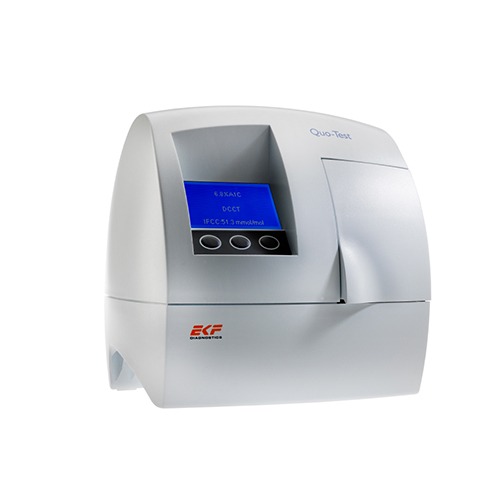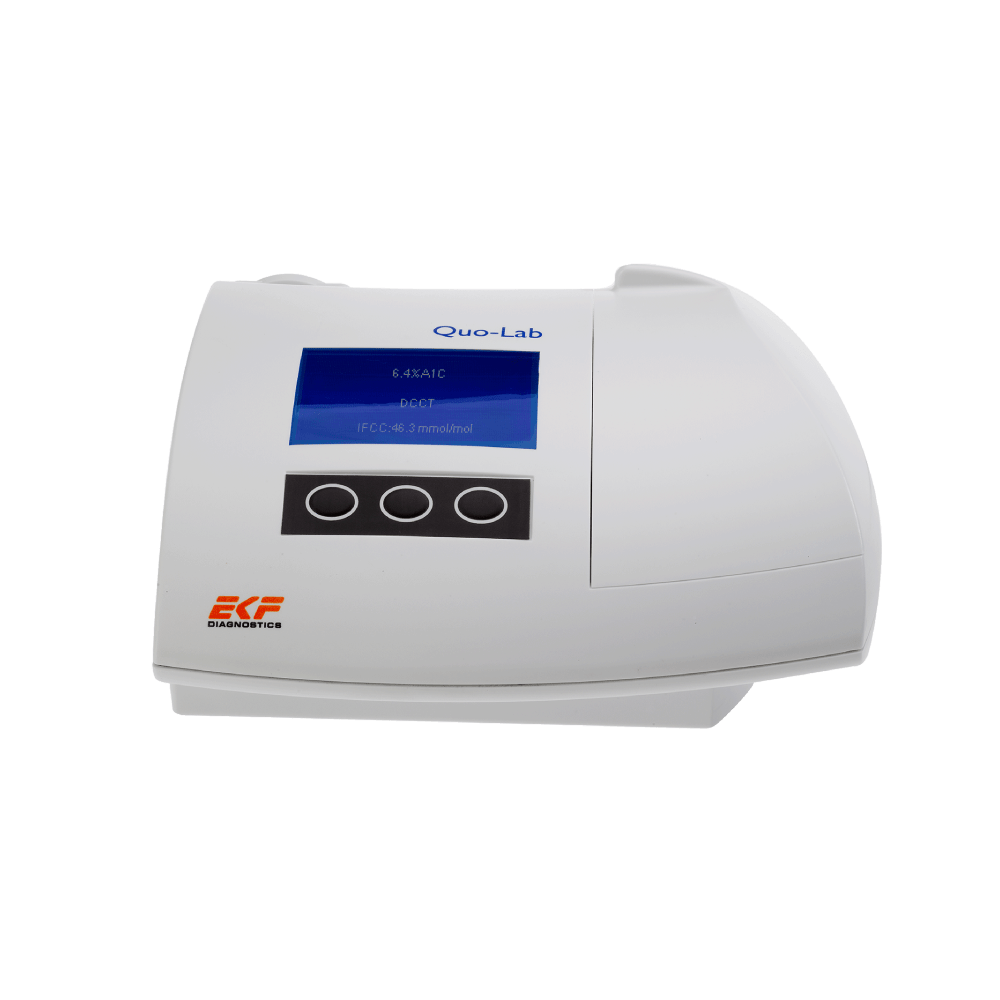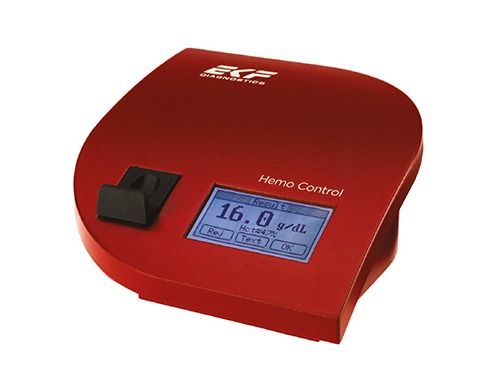In an era where immediate results are not just expected but required, the medical industry is witnessing significant advancements in diagnostic technologies. Among these, point-of-care blood analysers are indispensable tools within healthcare settings, revolutionising how patient care is delivered. For healthcare professionals considering integrating or upgrading their laboratory equipment, understanding the capabilities and applications of these devices is crucial.
What are Point-of-Care Blood Analysers?
Point-of-care (POC) blood analysers are compact, portable devices that allow medical professionals to conduct blood tests at the site of patient care. Removing the need to send samples to a central laboratory. This technology is enabling immediate results, making it a critical component in fast-paced medical environments. For example, emergency rooms, clinics, and outpatient care facilities are using Point-of-Care blood analysers. The main advantage of POC blood analysers is their ability to expedite the diagnostic process, which in turn enhances decision-making and patient outcomes.
Point-Of-Care analysers are subject to regulatory approval MHRA (Medicines and Healthcare products Regulatory Agency) in the UK. These regulations ensure the safety, accuracy, and effectiveness of the devices.

Applications of Point-of-Care Blood Analysers
These devices are versatile in their utility, capable of measuring a wide range of blood parameters. These blood parameters include glucose, haemoglobin, and glycosylated haemoglobin (HbA1c). This makes them particularly valuable in the management of chronic conditions like diabetes, where regular monitoring is essential. In critical care settings, clinicians use them for immediate blood analysis, quickly and accurately assessing organ function or electrolyte balance.
Advantages of Using Point-of-Care Blood Analysers
The primary benefit of using a POC blood analyser lies in its ability to provide rapid results. By minimising the wait times associated with laboratory analyses, medical practitioners can make quicker decisions about patient management. Therefore, this speed can be a deciding factor in emergency situations where every second counts. Moreover, these devices reduce the potential for sample degradation or error that might occur during transport to a central lab. Thus ensuring more accurate results.
EKF Diagnostics’ Leading Blood Analysers
Biosen C-Line
EKF Diagnostics specifically designed the Biosen C-Line series for high-precision glucose and lactate measurements in clinical environments. Renowned for its accuracy and reliability, the Biosen C-Line is particularly suited for critical care environments, diabetes clinics and sports medicine applications. Its user-friendly interface and rapid output make it an excellent choice for healthcare facilities aiming to enhance their diagnostic capabilities.
In summary, the simultaneous testing of glucose and lactate in clinical labs is essential for providing a complete metabolic profile and helping diagnose various conditions. Additionally, it’s used for assessing patient status in acute settings, and managing long-term health conditions more effectively.
Quo-Test A1c
The Quo-Test A1c analyser is a fully automated device that delivers fast and reliable HbA1c measurements. Its simplicity and cartridge-based system make it ideally suited for use in primary care settings where non-specialist staff can operate it with minimal training. This analyser is critical for the effective management of diabetes, offering results within four minutes.
HbA1c testing is a cornerstone in diabetes care. It provides a long-term indicator of blood glucose control, reflecting average blood sugar levels over a period of two to three months. Regular HbA1c monitoring enables timely treatment adjustments, preventing diabetes complications and improving patient outcomes.

EKF Diagnostics Quo-Test HbA1c Blood Analyser
The Quo-Test A1c blood analyser is a simple and accurate device from EKF Diagnostics for measuring glycated haemoglobin (A1c) levels. This fully-automated system is ideal for the management and monitoring of diabetes in settings such as doctors surgeries.
The Quo-Test HbA1c system is a fully automated haemoglobin A1c analyzer that uses patented boronate affinity fluorescence quenching technology to measure glycated haemoglobin from a 4 μl sample taken from a finger prick or venous whole blood.
Sample results are available within four minutes and are dual-reported in IFCC and DCCT.
Quo-Lab A1c
For smaller clinics or practices with lower testing volumes, the Quo-Lab A1c provides a perfect solution without compromising on accuracy or efficiency. This cost-effective analyser delivers consistent HbA1c results. The device operates with a small blood sample, making it patient-friendly and practical for ongoing diabetes management.
Measuring HbA1c is essential in diabetes care. Healthcare providers track the effectiveness of treatment plans by understanding how well patients are maintaining their blood glucose levels over time. This is particularly important for adjusting medications and lifestyle interventions to achieve optimal health outcomes.

EKF Diagnostics Quo-Lab HbA1c Blood Analyser
Quo-Lab HbA1c blood analyser is a desktop point-of-care analyzer for measuring glycated haemoglobin (HbA1c).
The semi-automated analyzer has been designed specifically to meet the needs of diabetes clinics and laboratories in settings that demand a low cost of operation and ease of use.
Hemo Control
Hemo Control measures haemoglobin and haematocrit. Blood donation centres, clinics, and maternity settings use it extensively. Its ease of use and robust design make it ideal for environments requiring regular and reliable blood testing. This analyser is particularly valuable for its role in anaemia screening and monitoring, a common concern during pregnancy.
The ability to quickly assess haemoglobin levels on-site allows for immediate interventions if needed. This is crucial in managing maternal health and ensuring the well-being of both mother and baby. The Hemo Control’s portability and efficiency make it an indispensable tool in maternity wards where quick decision-making and accuracy are paramount.
Suggested blog: Teesside University’s Evolution in the Field of Clinical Research – Teesside University created a comprehensive suite of blood analysis protocols within their new clinic, which included the Hemo Control by EKF Diagnostics.

EKF Diagnostics Hemo Control Analyser
The Hemo Control Hemoglobin and Hematocrit Analyser from EKF Diagnostics represents an upgrade of the well established Hemo Control system and provides quantitative and lab-quality haemoglobin results from 25 seconds.
EKF Diagnostics Hemo Control Photometer uses the most established photometric azide methemoglobin method ensuring reliable results with a high precision (CV <2%).
This Hemo Control photometer comes complete with carry case and user manual, power supply with adaptor, control cuvette, 2 x cleaners and wall poster.
Hemo Control is used in blood banks, hospitals and doctors’ offices for routine screening for anaemia. The Hemo Control analyzer features a bi-directional interface using a public standard protocol that allows direct integration with third-party software.
Can EKF Diagnostics’ Point-Of-Care Analysers Be Integrated with Hospital Information Systems?
Many modern POC analysers, including those from EKF Diagnostics, are designed to be integrated with hospital information systems (HIS) or electronic health records (EHR). Allowing for seamless data transfer, real-time access to test results, and improved record-keeping. Specifically, EKF Diagnostics offers EKF Link, a connectivity solution that facilitates the integration of their point-of-care devices with various HIS and EHR systems. EKF Link supports the automated transfer of patient results from EKF devices directly to medical records, ensuring data accuracy and reducing manual entry errors.
This connectivity solution enhances clinical workflow efficiency and supports compliance with healthcare data standards, making it an invaluable tool for healthcare facilities looking to optimise their diagnostic and data management processes.
Conclusion
Point-of-care blood analysers represent a transformative advancement in medical diagnostics, offering healthcare professionals the tools they need to achieve faster and more precise patient assessments.
EKF Diagnostics’ range of blood analysers, including the Biosen C-Line, Quo-Test, Quo-Lab A1c, and Hemo Control, provide robust solutions that cater to a variety of medical and clinical needs. By incorporating these technologies, healthcare providers can enhance their service quality, improve patient outcomes, and streamline their operational efficiencies.
Moreover, for those looking to elevate their clinical practice, embracing the power of point-of-care blood analysis is a strategic step forward.
Enhance Your Healthcare Services with EKF Diagnostics’ Solutions
If you’re looking to integrate state-of-the-art point-of-care analysers into your healthcare practice in the UK or Ireland, HaB Direct is here to assist you. As a proud distributor of EKF Diagnostics’ products, we offer comprehensive support and expertise to help you select and implement the right diagnostic tools for your needs. Contact us today to discuss how we can enhance your patient care with the latest in point-of-care technology.

